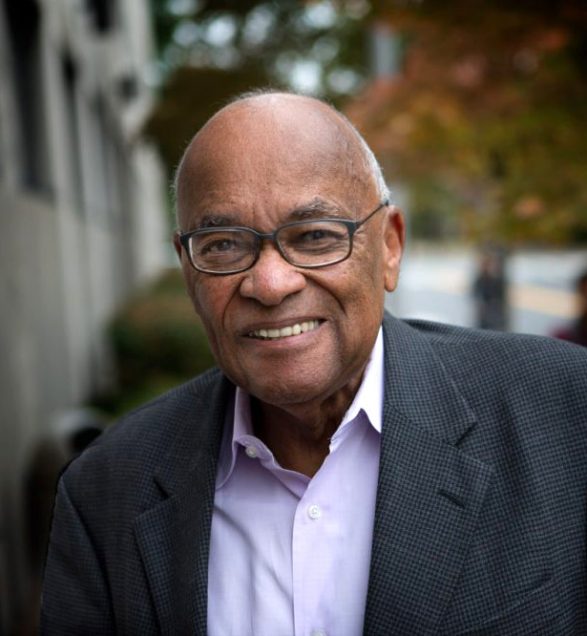The Hubie Jones Lecture in Urban Health is presented by the BU School of Social Work in honor of BUSSW Dean Emeritus Hubie Jones.
The 2024 Hubie Jones Lecture in Urban Health:
Health Equity & The Importance of Zip Codes
Presented by M. Lee Pelton, President and CEO of The Boston Foundation
April 2, 2024 | BU Kilachand Center
Watch the recording:
In Greater Boston, the average life expectancy for some sections of the Back Bay neighborhood is age 92. Travel two miles to Nubian Square in Roxbury and residents have the shortest average lifespan in Greater Boston, at just 69 years.
In the 2024 Hubie Jones Lecture in Urban Health: Health Equity & The Importance of Zip Codes, Lee Pelton, president and CEO of The Boston Foundation – one of the nation’s first and most influential community foundations – discusses why where you live has a greater influence on your health and well-being than your genetics, and how a legacy of racial discrimination and land covenants in the United States has contributed to our present-day health equity crisis. This history matters, and Pelton’s lecture demonstrates why we must understand the past in order to create lasting solutions to address the healthcare needs of our most vulnerable communities.
After the lecture, Prof. Darien Alexander Williams of BUSSW joins Pelton in conversation and attendees engage in an audience Q&A.
1.5 social work CE credits offered to registered attendees.
Speaker: M. Lee Pelton

Civic engagement, authenticity and a deep commitment to social justice are the cornerstones of Lee Pelton’s career and leadership. He joined the Boston Foundation in June 2021, after serving as president of Emerson College from 2011-2021 and Willamette University from 1998-2011. Pelton has positioned The Boston Foundation, one of the nation’s first and most influential community foundations, as an agent for social change by centering equity in its programs, grantmaking and civic leadership. Under his leadership, the Foundation’s defining ambition is to achieve equity, which first involves acknowledging and then seeking to eliminate the structural and underlying causes of outcome disparities for historically marginalized communities.
About Hubie Jones
About the Hubie Jones Lecture in Urban Health
Past Lectures
2023 Hubie Jones Lecture
2020 Hubie Jones Lecture
2019 Hubie Jones Lecture
